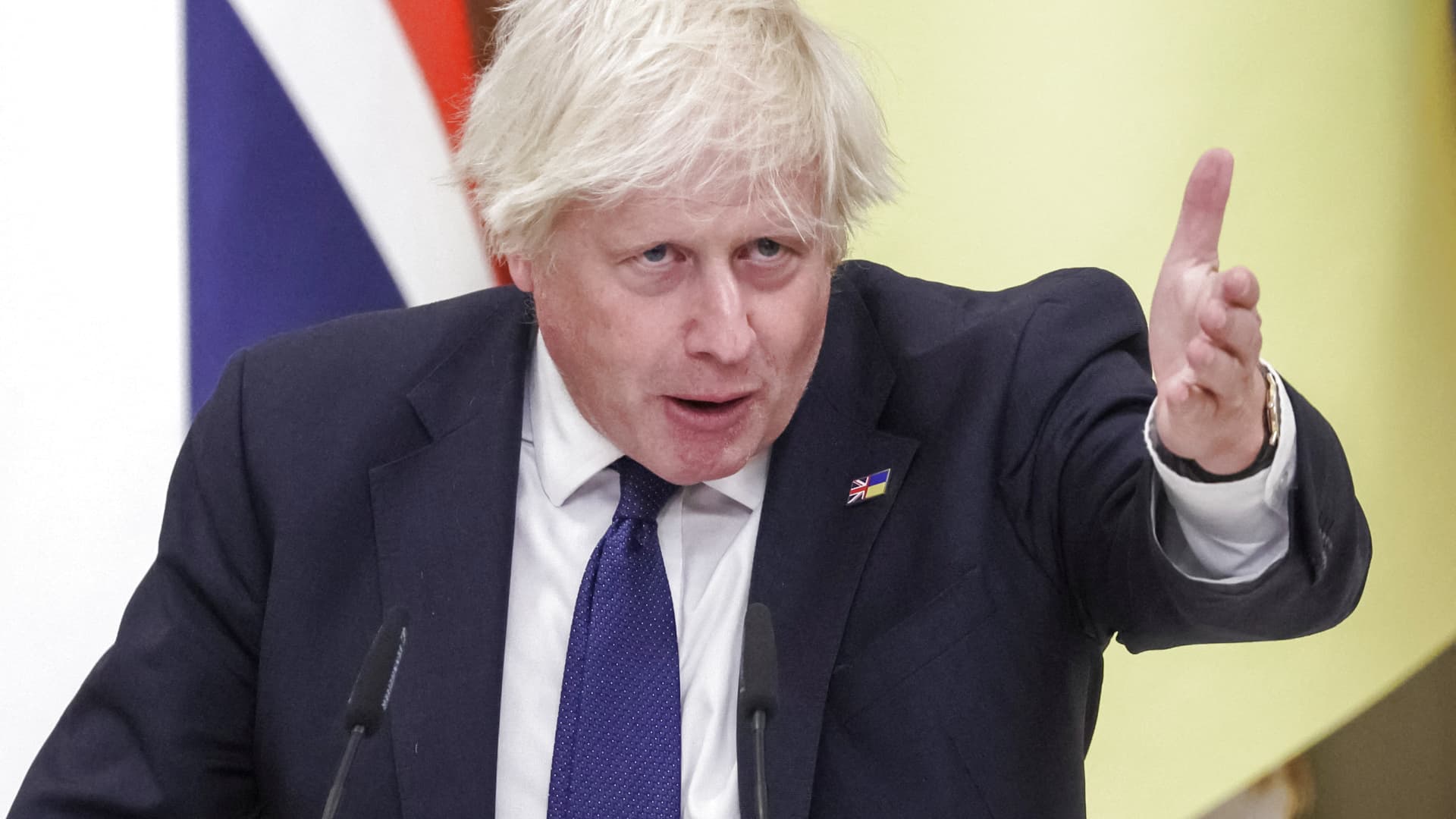Former UK PM Boris Johnson pulls out of leadership race to replace Liz Truss

Johnson previously enjoyed high levels of popularity until losing credibility in the final months of his premiership.
Gleb Garanich | Reuters
LONDON — Former U.K. Prime Minister Boris Johnson will not take part in the contest to replace outgoing leader Liz Truss.
Despite being ousted from office just three months ago, some Conservative MPs had backed Johnson for the top job, and he reportedly told allies over the last couple of days that he would formally join the contest.
But in a statement late Sunday, Johnson said it was “simply not the right time.” He added he had “cleared the very high hurdle of 102 nominations” to take part in the latter stages of the contest. Around 60 lawmakers had publicly backed the ex-PM but there had been question marks over exactly how many nominations he had received.
Johnson mentioned his two rivals in his statement, Rishi Sunak and Penny Mordaunt, who have both officially entered the contest.
“And though I have reached out to both Rishi and Penny — because I hoped that we could come together in the national interest — we have sadly not been able to work out a way of doing this,” Johnson said.
Sunak the favorite
Former Finance Minister Sunak is now the red hot favorite to be the next British leader with around 140 nominations so far.
On Saturday, Johnson flew back from a vacation in the Caribbean amid a media frenzy he would throw his hat into into the ring. Johnson is believed to still be popular in the grassroots of the wider Conservative Party despite many Tory MPs being firmly against a return.
Former culture secretary and close Johnson ally Nadine Dorries tweeted Thursday that he was the only MP with “a mandate from party members and the British public,” having won the 2019 General Election.
“There is a very good chance that I would be successful in the election with Conservative Party members — and that I could indeed be back in Downing Street on Friday. But in the course of the last days I have sadly come to the conclusion that this would simply not be the right thing to do. You can’t govern effectively unless you have a united party in parliament,” Johnson said in the statement Sunday.
Johnson previously enjoyed high levels of popularity until losing credibility in the final months of his premiership amid political scandal around Covid-19 rule-breaking and his links to disgraced MP Chris Pincher.
In his parting speech he alluded to a future return to office with the words: “Hasta la vista, baby” or “see you later.”
British Prime Minister Liz Truss resigned Thursday, bringing to a close a brief 44-day tenure mired by “mini-budget” chaos, economic turmoil and weeks of political infighting.
How the contest works
Truss’ successor will once again be decided by a Conservative Party leadership contest drawn from a short-list of candidates. This time, however, the process has been fast-tracked into the space of a week, as the party seeks to salvage its credibility and reassure markets.
Candidates have until 2 p.m. London time on Monday to gain the backing of 100 MPs and therefore enter the ballot for party leader.
The threshold is particularly high given that the party is comprised of 357 MPs, and each is allowed to vote for only one candidate. That thus limits the number of possible contenders to three.
If just one candidate receives the 100 votes required, they will automatically win the race and become Britain’s next prime minister. If two or more candidates reach 100 nominations, the contest will proceed to indicative ballots on Monday afternoon and evening.
Should the process extend beyond Monday, Conservative Party members — which number around 200,000 people representing 0.3% of the British population — will have until Friday 11 a.m. to vote for their preferred candidate in an online ballot.









